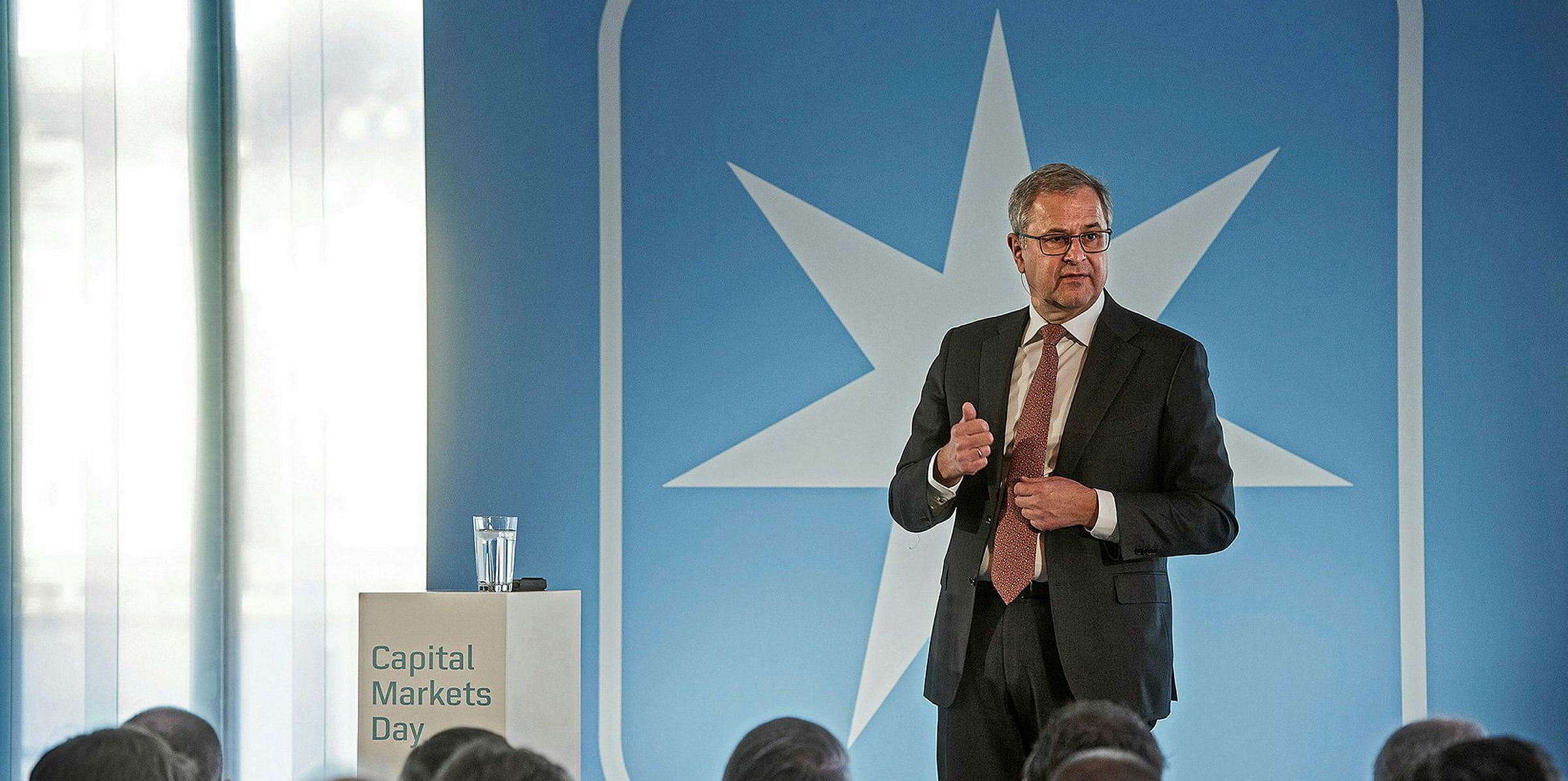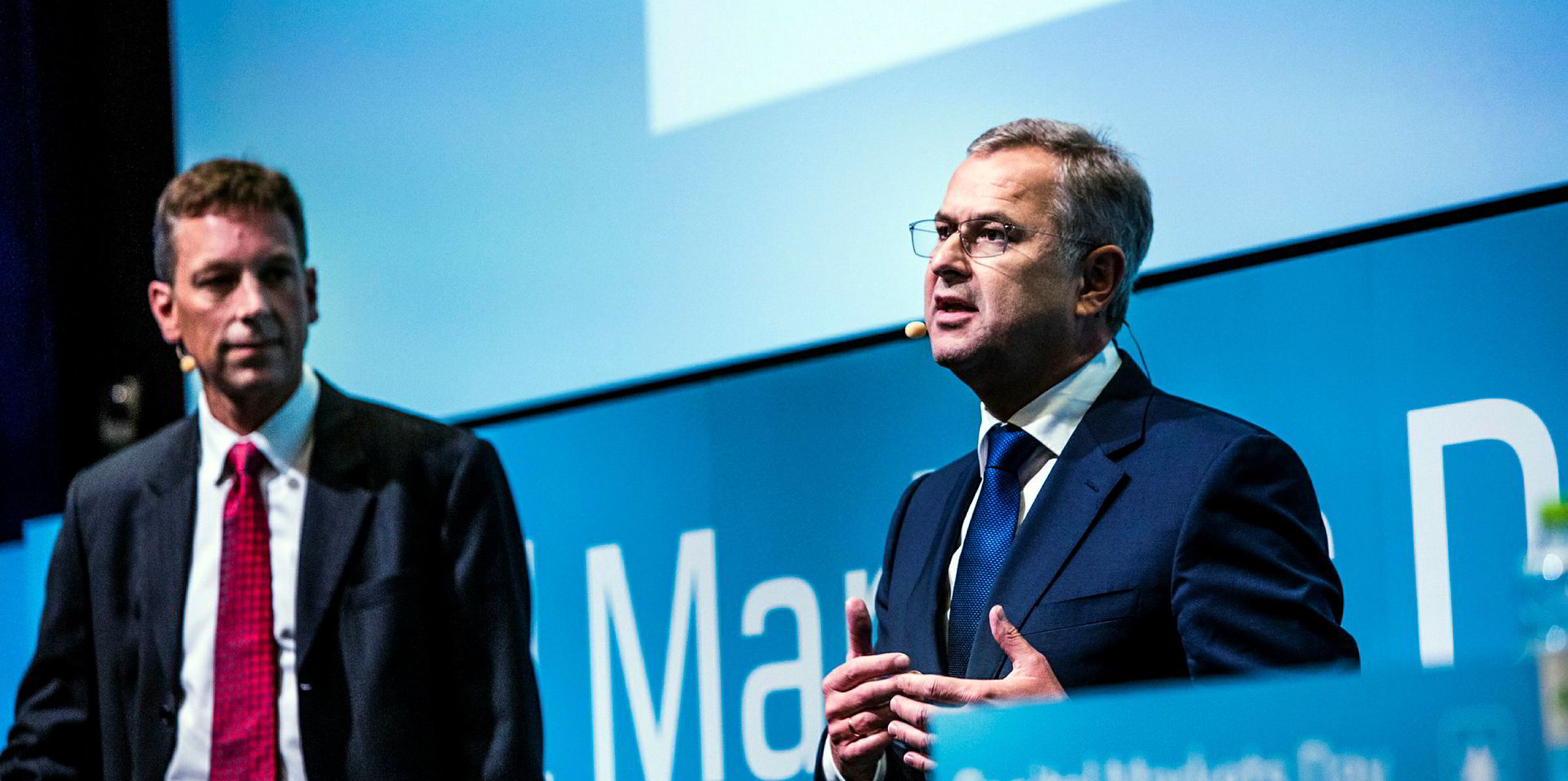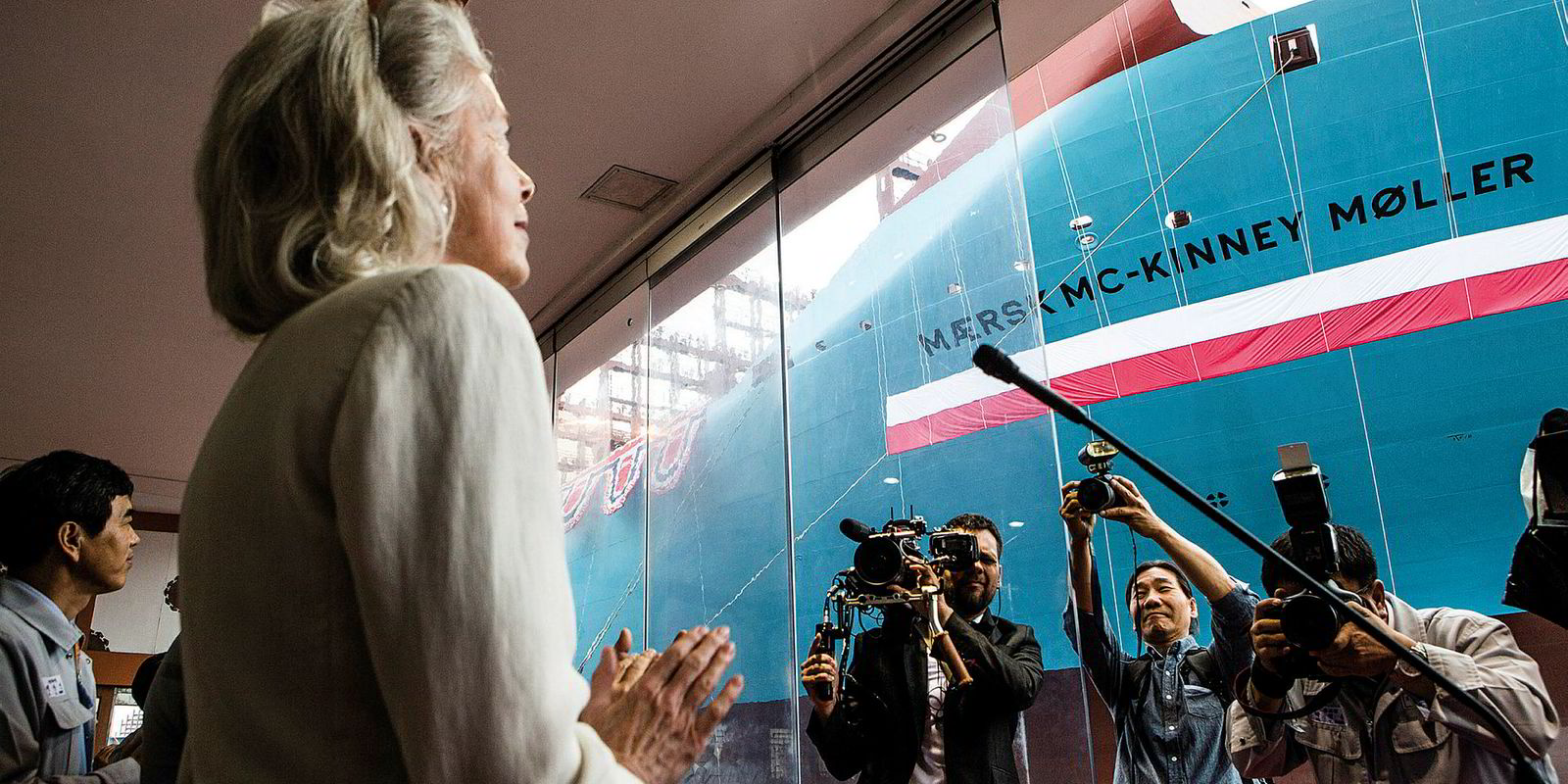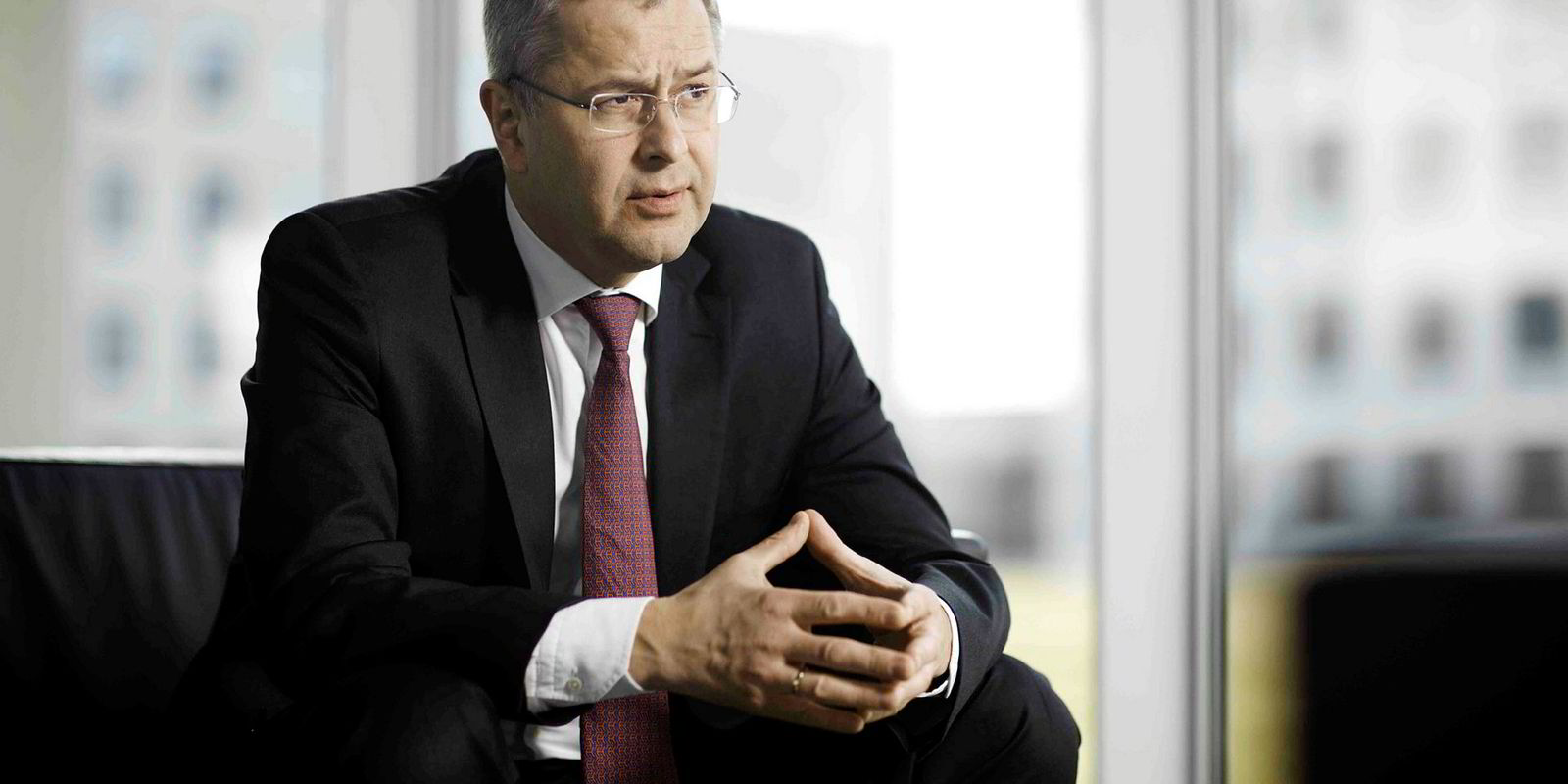Soren Skou shot down rumours Maersk Line had started a price war in the container market as the world’s largest shipowner warned of escalating trade tensions between the US and China clouding its market outlook.
AP Moller-Maersk chief executive Skou was forced to defend the company's performance in a conference call after it reported a weaker than forecast first quarter performance which tipped its stock downwards this morning.
“I can absolutely deny we have started a price war and we have zero intent to do so,” Skou said during a results presentation when pressed on the matter by analysts.
“We are focused on profitability and generating cash,” he said.
Maersk reported a loss of $69m in the opening three months of the year, down from $329m in the same period of 2018, excluding a writedown following the listing of Maersk Drilling.
The red ink disappointed analysts, with consensus having guided for a profit of $39m.
Frode Morkedal of Clarksons Platou Securities called the results "surprisingly weak" and during the conference call Skou was challenged on the company’s under-performance relative to Hapag-Lloyd.
“We are not beating Hapag-Lloyd but we are beating everybody else who has reported during this reporting cycle,” he said, stressing he did not want to get involved in comparisons with one peer.
While a price war is not on Maersk’s radar, it is keeping a close eye on hostilities between the US and China.
“New tariffs can potentially reduce expected growth in global container volumes by up to 1 percentage point,” Skou said in a statement this morning.
In February Maersk had guided container market demand growth would fall to between 1% and 3% in 2019, down from 4% in 2018.
“The recent escalation of the trade-war induced by an increase in tariff rates and threats of implementing additional tariffs could take global container trade growth to the lower end of the 1-3% interval (range),” Maersk said in its quarterly report today.
Shares in AP Moller were trading down over 3% at the end of the investor presentation on Friday.
Skou said he believed the company had experienced a good start to the year and “we are in a much better place in terms of our balance sheet strength”.
He pointed to debt being $7bn lower than a year ago, helped by cash from the sale of Total shares being used to delever the balance sheet.
This is a key ingredient in the Maersk transformation as it is intent on keeping its investment grade credit rating.
In line with Maersk’s previous actions, Skou said the company would not be investing in large containerships and would look to efficiencies in its network to secure growth in line with the market.
Instead, its capital will be directed towards organic and inorganic growth in the non-ocean areas of the business, which is transitioning to a transport and logistics pure-play.
Skou said some additional time charter coverage would be taken to plug gaps as vessels entered dock to have scrubbers fitted, but investors should expect very disciplined capex in the container space.
“We are very much focused on improving earnings than increasing our market share,” he said.






